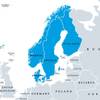Cutlasses have been traded in for AK47s and galleons for high-powered speedboats, but pirates are still thriving and, according to a report released on Thursday, the international piracy business is flourishing.
Piracy worldwide rose by 57 percent with 469 attacks recorded last year, a 10-year high, said the report from the International Maritime Bureau (IMB). "There's been a sudden emergence of attacks in the Malacca Straits and the Red Sea," IMB deputy director Captain Jayant Abhyankar told Reuters.
Indonesian waters suffered the highest number of attacks with 119.
Rum-swigging, womanizing rascals they are not. Today's pirates are well-orchestrated teams of hired mercenaries who will often murder the entire crew of a ship rather than risk leaving witnesses. Piracy worldwide, including terrorist attacks, left 72 seafarers dead in 2000, compared to just three in 1999. And although the IMB said the figures had been skewed by two particularly horrific terrorist incidents in 2000, the overall trend is still extremely worrying for shipping authorities.
A bomb attack on a Filipino ferry, Our Lady of Mediatrix, last February left 40 dead. The terrorist attack on the U.S. warship USS Cole in Yemen on Oct 12, killed 17. Terrorist attacks aside, the figures describe a world in which hijacking and stealing ships still pays.
Crews are often tied up and the ship's bridge left unmanned during these attacks. Captain Abhyankar said he feared that sooner or later this would lead to a collision between ships and an environmental disaster.
"The Malacca Strait is very narrow -- at least it is for a supertanker -- and the entrance to the Red Sea is not only very narrow but also very crowded. The threat of an ecological catastrophe cannot be ignored."
The attacks are often highly planned, with the whole operation being orchestrated from maritime centers such as Singapore. Sometimes the cargo has already been identified and sold before it has even been captured. Bulk commodities such as sugar, metals and petrochemicals are key targets, as illustrated by an attack on the Malaysian tanker Petchem in September.
"At approximately 02:30 hours, when the duty (seaman) was opening the starboard bridge door of the wheel house, armed pirates attacked him," reads the report.
"The seaman made to run but was slashed on his right knee with a long parang (machete)..." Having taken control of the tanker, the 21 pirates repainted the funnel to prevent identification and changed the name.
Within 24 hours the entire 2,547-ton cargo of gas oil had been unloaded into another unmarked tanker.
Although this was clearly a well-choreographed attack, others have been less successful. On October 1, masked and heavily armed pirates stormed the bulk carrier Hazel 1 as it lay at anchor in the Singapore Straits.
The suspected hijack attempt was only foiled when the pirates discovered that the ship's engine had been dismantled for repairs.
It would be too easy to simply categorize piracy as a crime by desperate people against the world's trading giants. But often locals are as much a target as foreign vessels, and most years fishermen have been washed up dead as a result.
The Bangladeshi trawler Shafiullah, was found by police in October, drifting near the island of Sandwip.
"Police retrieved nine dead bodies from the cold store room of the vessel," said the report. "They believed the victims had been killed brutally by pirates and dumped in the cold room thereafter."
The IMB's website, www.icc-ccs.org, shows that 2001 has already got off to a brutal start. Four attacks in the Philippines involving rocket-propelled grenades and a bloody assault on a dredger crew in Singapore in January prove that pirates are still far from the loveable wooden-legged rogues of childhood story-books. - (Reuters)
Featured videos

Inmarsat Enhances Service to Drive Digitalization

Inside the Electrified Truckable Tug

Tracking Foreign Vessels Working in the U.S. Jones Act Market
Subscribe for
Maritime Reporter E-News
Maritime Reporter E-News is the maritime industry's largest circulation and most authoritative ENews Service, delivered to your Email five times per week









